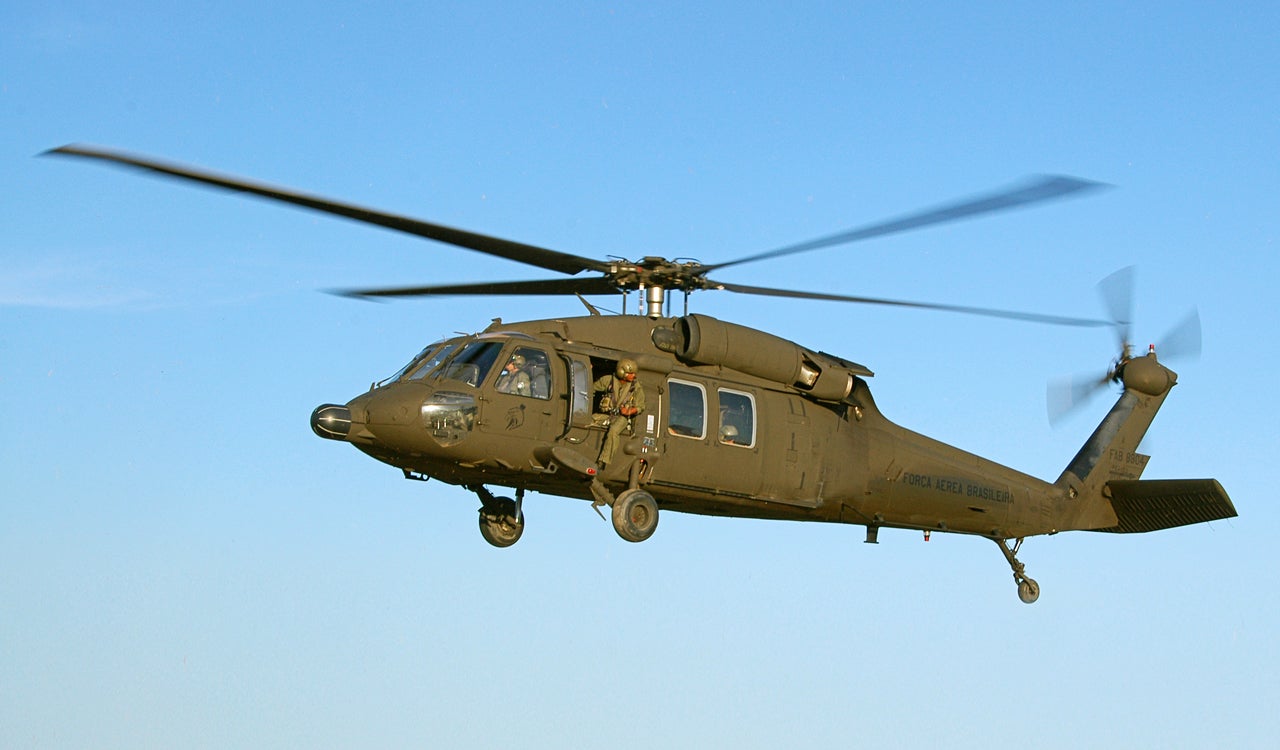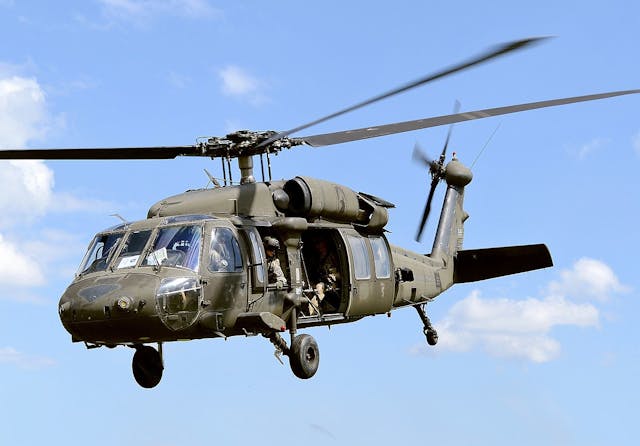UH 60 Black Hawk Helicopter Versions and Their Usages
UH 60 Black Hawk Helicopter Versions and Their Usages
Blog Article
The Impact of Sustainable Practices on the Future of Airplane Procedures and Emissions Reduction
As the air travel sector encounters raising analysis over its ecological impact, the fostering of lasting methods emerges as a critical path toward future airplane procedures and exhausts decrease. Developments in sustainable air travel gas and advancements in crossbreed propulsion technologies stand at the leading edge of this change, promising substantial reductions in greenhouse gas discharges. The effective combination of these efforts pivots on a selection of elements, including regulative structures and industry collaboration. The concern remains: exactly how will these evolving practices improve the characteristics of air travel and add to an extra sustainable future?

Overview of Sustainable Practices
Lasting methods in aircraft procedures encompass a series of methods intended at lowering environmental influence while maintaining functional efficiency. These methods are crucial in the air travel industry's commitment to lessening its carbon footprint and adhering to global environmental standards. Secret initiatives consist of enhancing trip paths to lower fuel usage, improving upkeep protocols to make sure airplane run at peak performance, and carrying out innovative technologies such as winglets and lightweight products that improve the rules of aerodynamics.

Training and engaging personnel on sustainability methods additionally play an essential role, fostering a culture of ecological duty within organizations. On the whole, the assimilation of these lasting techniques not just helps in reducing discharges however also boosts the long-term viability of the aviation market, ensuring it fulfills the demands of both clients and regulative bodies while adding to worldwide sustainability goals.
Ingenious Fuel Alternatives
Various innovative fuel choices are becoming critical remedies to minimize the aeronautics market's reliance on conventional nonrenewable fuel sources. Amongst these options, Sustainable Air travel Gas (SAFs) have obtained significant focus because of their possible to decrease lifecycle greenhouse gas exhausts by up to 80% compared to traditional jet fuels. SAFs are stemmed from various feedstocks, including waste oils, farming residues, and even algae, making them a flexible choice for the industry.
One more appealing choice is hydrogen gas, which, when made use of in gas cells, generates only water vapor as a by-product. In addition, electric propulsion systems are being discovered, leveraging battery innovation to power airplane.
Last but not least, biofuels stemmed from biomass are being checked out, providing a sustainable option that can be mixed with typical gas. Jointly, these cutting-edge fuel options stand for an important step toward achieving a lasting aeronautics ecological community, aligning with international discharges decrease targets and enhancing the sector's ecological stewardship.
Technological Developments in Aeronautics

How can technological innovations reshape the future of aeronautics? Developments such as hybrid and electric propulsion systems are at the leading edge, appealing substantial reductions in fuel intake and greenhouse gas exhausts.
Furthermore, the application of sophisticated materials, such as light-weight compounds, contributes to enhanced the rules of aerodynamics and fuel efficiency. The use of expert system and artificial intelligence in trip procedures enhances course preparation and lowers gas melt by enabling real-time changes based upon weather condition and traffic conditions. Furthermore, the growth of autonomous and remotely piloted airplane systems stands to transform freight and traveler transportation, potentially increasing efficiency while minimizing human error.
Additionally, sustainable aeronautics innovations, including advanced air traffic management systems, can simplify procedures and click reference minimize congestion, causing lower emissions throughout flight. These improvements jointly stand for additional resources a paradigm change in air travel, assuring a future where sustainability and operational efficiency are intertwined, therefore sustaining the sector's commitment to reducing its environmental effect.

Governing Framework and Compliance
In light of the growing emphasis on environmental stewardship within the aeronautics industry, the regulatory framework regulating airplane operations is advancing to advertise sustainable methods. Regulative bodies, such as the International Civil Air Travel Company (ICAO) and various nationwide aviation authorities, are presenting stringent standards intended at lowering discharges and enhancing functional effectiveness.
These policies usually include the adoption of Sustainable Air travel Gas (SAF), which has actually been identified as a vital part in accomplishing reduced carbon impacts. Compliance with these guidelines calls for airline companies to execute operational practices and innovative modern technologies, such as maximized flight paths and improved air website traffic administration, to minimize fuel consumption.
In addition, the enforcement of emissions trading schemes and carbon offsetting initiatives is coming to be significantly widespread, compelling airlines to monitor and report their emissions precisely. Non-compliance can cause significant fines, hence pushing operators to focus on sustainability in their organization designs.
Ultimately, the evolving regulatory landscape not only drives advancement and financial investment in eco-friendly modern click for info technologies yet also cultivates a culture of liability within the aeronautics sector. As these frameworks remain to establish, the concentrate on sustainable practices will certainly be indispensable to achieving the field's long-lasting environmental objectives.
Future Fads in Aircraft Procedures
As the aviation market adapts to a progressively strict regulative atmosphere, future trends in aircraft operations are established to concentrate on cutting-edge services that further enhance sustainability and performance - uh 60. Secret advancements will likely include the fostering of innovative air traffic monitoring systems, which utilize real-time information and synthetic knowledge to maximize trip courses, lowering fuel usage and emissions
An additional substantial pattern is the raised integration of sustainable aviation fuels (SAFs) These alternatives to conventional jet fuel, stemmed from sustainable resources, can dramatically reduce lifecycle greenhouse gas emissions. The industry's commitment to SAFs will likely accelerate as airlines team up with gas producers to make certain schedule and cost-effectiveness.
Additionally, the press in the direction of electrification and crossbreed propulsion systems is acquiring momentum. Emerging airplane styles will certainly incorporate these innovations, using quieter and extra effective operations, especially for short-haul trips.
Verdict
To conclude, the integration of lasting techniques in aircraft operations holds significant capacity for emissions decrease and boosted performance. The fostering of lasting air travel gas, paired with innovations in hybrid and electrical propulsion systems, is crucial for minimizing lifecycle greenhouse gas exhausts. Furthermore, enhancing trip courses and accepting innovative modern technologies add to a quieter and extra eco-friendly aviation industry. Jointly, these initiatives straighten with international sustainability objectives and lead the way for a greener future in aviation.
Advancements in sustainable aviation fuels and improvements in crossbreed propulsion innovations stand at the forefront of this change, encouraging considerable decreases in greenhouse gas exhausts.Countless ingenious gas alternatives are emerging as crucial options to lower the air travel market's reliance on standard fossil gas - uh 60. Among these choices, Lasting Aviation Gas (SAFs) have obtained significant interest due to their potential to decrease lifecycle greenhouse gas discharges by up to 80% contrasted to traditional jet fuels.One more significant fad is the boosted assimilation of sustainable air travel fuels (SAFs) The adoption of sustainable aeronautics fuels, paired with improvements in hybrid and electrical propulsion systems, is vital for reducing lifecycle greenhouse gas exhausts
Report this page